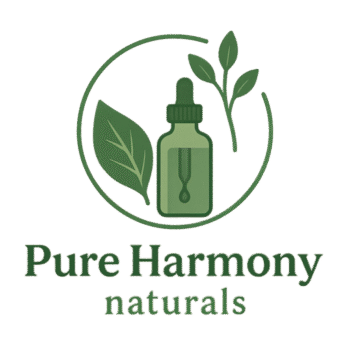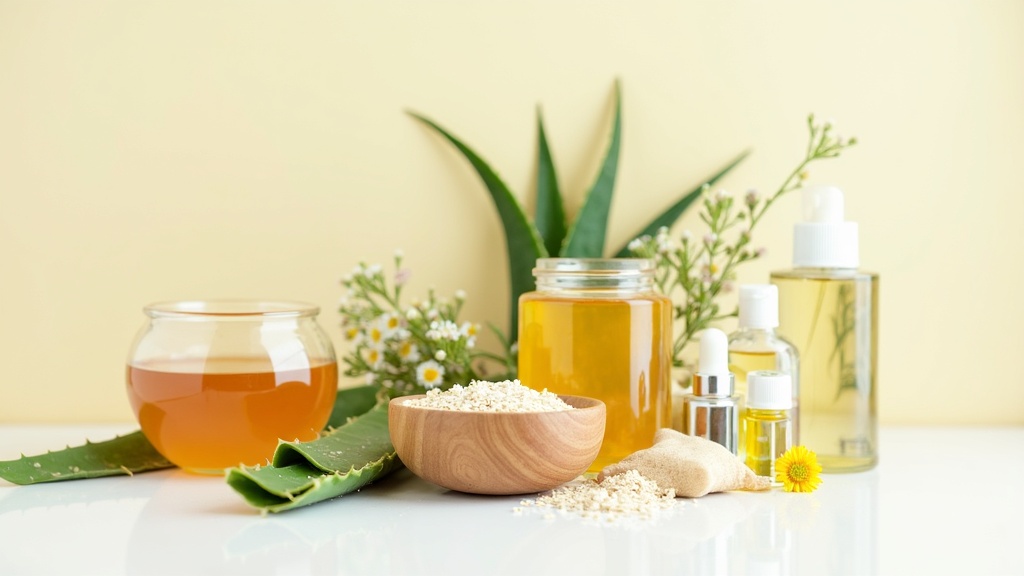Natural skin care products have gained a big following, with fans drawn to botanical ingredients and claims of safer, gentler results. People with sensitive or allergyprone skin often look for alternatives to mainstream commercial brands, and there’s a lot of talk about whether natural or organic options are truly better. There are some cool benefits, but also a few things to watch out for if you’re considering a switch. I’m breaking down what you need to know, compared with the usual storebought varieties, and throwing organic skin care into the mix as well.

What Counts as Natural or Organic Skin Care?
First, it helps to clear up what “natural” and “organic” skin care products actually mean, since brands can use those words pretty loosely. Natural products usually use plantbased or mineralderived ingredients. Organic products take it a step further by following stricter farming standards. That means no synthetic pesticides, fertilizers, or GMOs.
- Natural skin care: Often contains plant oils, flower extracts, and fewer synthetic preservatives.
- Organic skin care: Uses ingredients grown and processed without synthetic chemicals. Certified by a body like USDA or COSMOS.
- Mainstream commercial brands: May blend botanical extracts with synthetic ingredients, like silicones, parabens, and fragrances for consistency and long shelf life.
If you want to play it safe, look for accredited certification logos or check the actual ingredient lists instead of just trusting the label’s big print. Doing a little label investigating can help you make sense of the often confusing claims printed on product packaging.
Pros of Natural and Organic Skin Care Products
Natural and organic products get a lot of buzz for some pretty good reasons. Here’s what’s drawing people in, especially when putting them sidebyside with traditional commercial brands:
- Fewer harsh chemicals: A lot of formulas are free of artificial fragrances, dyes, sulfates, and parabens, which can be handy if you have sensitive skin.
- Gentler on skin: Plant extracts and oils, such as chamomile, calendula, and jojoba, tend to be soothing and less likely to cause irritation.
- Environmentally friendly: Many brands use biodegradable packaging, sustainably sourced ingredients, and crueltyfree formulations.
- Transparency: Ingredient lists for highquality natural and organic products are usually straightforward, with easy to recognize sources.
- Rich in antioxidants: Botanicals often pack natural vitamins and antioxidants that can help your skin deal with daily stressors.
- Safer for some allergies: Cutting out synthetic preservatives and fragrances makes reactions less likely for certain people, but not guaranteed safe for everyone.
Organic products, in particular, also mean fewer pesticide and fertilizer residues. That’s something many people with sensitive or reactive skin appreciate. Plus, using fewer artificial chemicals often means natural scents, which some people enjoy. If you’re environmentally conscious or crueltyfree focused, these products can also be a way to align your grooming routine with your values. The focus on sustainability, cleaner farming practices, and ecofriendly packaging are all reasons some choose to make the swap.
Cons of Natural and Organic Skin Care Products
It’s not all smooth sailing with natural options. There are some drawbacks that are worth knowing before ditching your old routine for good.
- Shorter shelf life: Fewer preservatives can mean products spoil or go rancid faster. That also means you usually can’t stock up way in advance.
- Possible allergens: Natural essential oils like lavender or citrus and nut derived ingredients can still trigger allergies or sensitivities.
- Higher price: Organic and all natural ingredients, plus certifications, often make these products cost more than mainstream ones. Some smaller, local brands, however, may offer good deals.
- Less research on effectiveness: Some plant powered remedies haven’t been studied as thoroughly as common synthetic actives like retinol or salicylic acid.
- Weaker “cosmetic performance”: Without synthetic stabilizers, textures and absorption can feel different and take getting used to, especially with things like creams or serums.
- Inconsistent results: Botanicals can vary in potency from batch to batch, affecting how well products work from one bottle to the next.
It’s common to experience some trial and error when searching for a natural product that clicks with your skin type. Even with strippeddown ingredient lists, those with fragrance allergies still need to scan product labels closely. Remember, just because something is plantbased doesn’t mean it’s automatically safe for your unique chemistry.
Comparing Safety: Natural vs Commercial Skin Care
One of the main reasons people switch up to natural or organic is concern over safety. Here’s a look at how they stack up:
- Natural/organic:
-
- Less synthetic ingredients that some people think are questionable, such as parabens or phthalates.
- Lower chance of exposure to trace pesticides (especially in certified organic brands).
- Can still cause reactions, especially from concentrated essential oils or plant extracts.
- Mainstream brands:
-
- Contain more synthetic preservatives and stabilizers for long shelf lives.
- More likely to have ingredients that have undergone safety testing, though not all are ideal for every skin type.
- Artificial fragrances and some preservatives are a top cause of irritation for sensitive skin.
With either type, doing a patch test on a small area before adding new products to your routine can help you avoid bigger reactions. It’s also smart to keep an eye on ingredient reviews and your own skin’s feedback.
Effectiveness: Do Natural Skin Care Products Really Work?
How well a product works depends on the formula, your skin type, and your skin goals. Natural and organic ingredients have been popular for ages. Some, like aloe vera and coconut oil, have earned loyal fans. But not every plant ingredient has the punch needed for every problem.
- For mild cleansing and hydration: Natural and organic cleansers, moisturizers, and oils can do a great job for everyday skin health.
- For targeted concerns (acne, antaging): Mainstream commercial products usually offer stronger clinical actives like benzoyl peroxide or retinoids that are proven for tough jobs. Some natural actives, like tea tree oil or bakuchiol, show promise but results may vary and can take longer.
- Consistency: Natural formulas are more prone to slight differences per batch, so you might have to adjust your routine occasionally.
- Synergy: Brands are starting to mix proven synthetic actives with botanicals for a middle ground, balancing performance and sensitivity.
Checking ingredient lists and seeking brands that provide some proof of efficacy, whether it’s small clinical trials or real user reviews, helps you sort out what’s buzz and what’s useful. Sometimes, the best fit is a blend of both approaches.
What About Organic Certification?
Organic skin care carries extra labels, and this is where things can get confusing. Not all “organic” products are 100 percent organic. Many are labeled “made with organic ingredients,” so it pays to read the fine print every time.
- Certified organic: Follows set standards for how ingredients are grown, harvested, and processed, with third party verification.
- Safer for ecofriendly users: If sustainable sourcing and minimizing chemical run off matter to you, genuine organic brands have an edge.
- Price and availability: Certified organic skin care is often pricier, and some niche products might be harder to find in local stores.
If you’re committed to cutting out as many synthetic chemicals as possible, organic certified products with transparent labeling are the way to go. They also tend to have stricter rules about ethical sourcing and cruelty free practices.
Tips for Choosing the Right Skin Care for You
Choosing between natural, organic, or mainstream commercial products comes down to your skin needs and what you value most. Here are some handy reminders:
- Check for common irritants, even in natural options. Essential oils, nut derivatives, or certain botanical extracts can set off some sensitivities.
- Look for clinical evidence or, at the very least, lots of verified customer reviews for any benefits claimed by the brand.
- Pay attention to expiration dates and storage instructions; they matter more with preservative free products.
- Remember that “chemicalfree” is a marketing phrase. Everything is made up of chemicals; what matters is the source and concentration.
- Introduce new products one by one so you can figure out easily if something disagrees with your skin.
Additionally, consider what matters to you—are ethical ingredients, green packaging, or local and smallbatch formulas priorities? Your choice should fit both your skin and your lifestyle.
Frequently Asked Questions About Natural Skin Care
People often have similar questions when deciding if natural or organic skin care is a good fit for them. Here are answers to what pops up most:
Question: Are natural skin care products always safer?
Answer: Not always. While they avoid certain synthetic ingredients, some people have reactions to natural oils, extracts, or nuts. Reading labels and patchtesting first is still important, no matter what type you use. Even plantbased ingredients, especially essential oils, might set off reactions, so it’s best to stay sharp and introduce anything new with care.
Question: What’s the biggest downside of natural skin care?
Answer: Shelf life and price can both be a downside. Many natural products need to be used up faster, and some can cost quite a bit more than commercial products. Additionally, people used to quick results from mainstream brands might notice a difference in feel and speed of visible benefits.
Question: Can natural skin care treat serious acne or aging issues?
Answer: For deeper concerns like acne or wrinkles, natural actives may help, but results tend to be milder than pharmaceutical grade treatments. Mainstream brands still lead for things like prescription retinol or antibiotic acne therapy. Sometimes, a doctor’s advice might be needed for persistent or severe issues, in which case traditional treatments are often more effective.
Question: Do organic certifications guarantee better quality?
Answer: Certifications are useful for transparency and sourcing standards. However, they don’t mean a product will work better for your specific skin type. Always check for ingredient compatibility and think about your individual needs before making a decision.
The Takeaway
Natural and organic skin care products offer a gentler and more ecofriendly alternative, but they aren’t perfect for everyone. Mainstream commercial brands, with their longer shelf life and sometimes more powerful actives, work well for people who want consistent results and reliable performance. In the end, the choice is personal. It comes down to your skin’s unique needs, your ingredient preferences, and how much you care about things like sustainability and clean sourcing. Take your time, check the facts, do a patch test, and go with what feels right for you.


